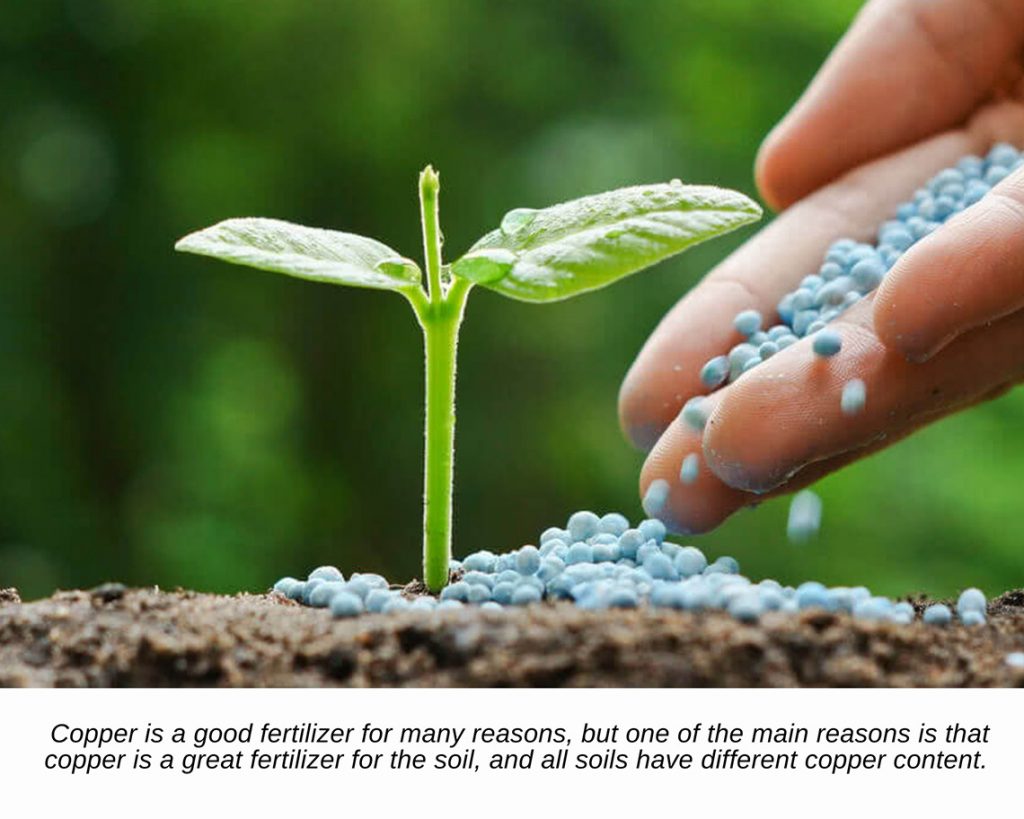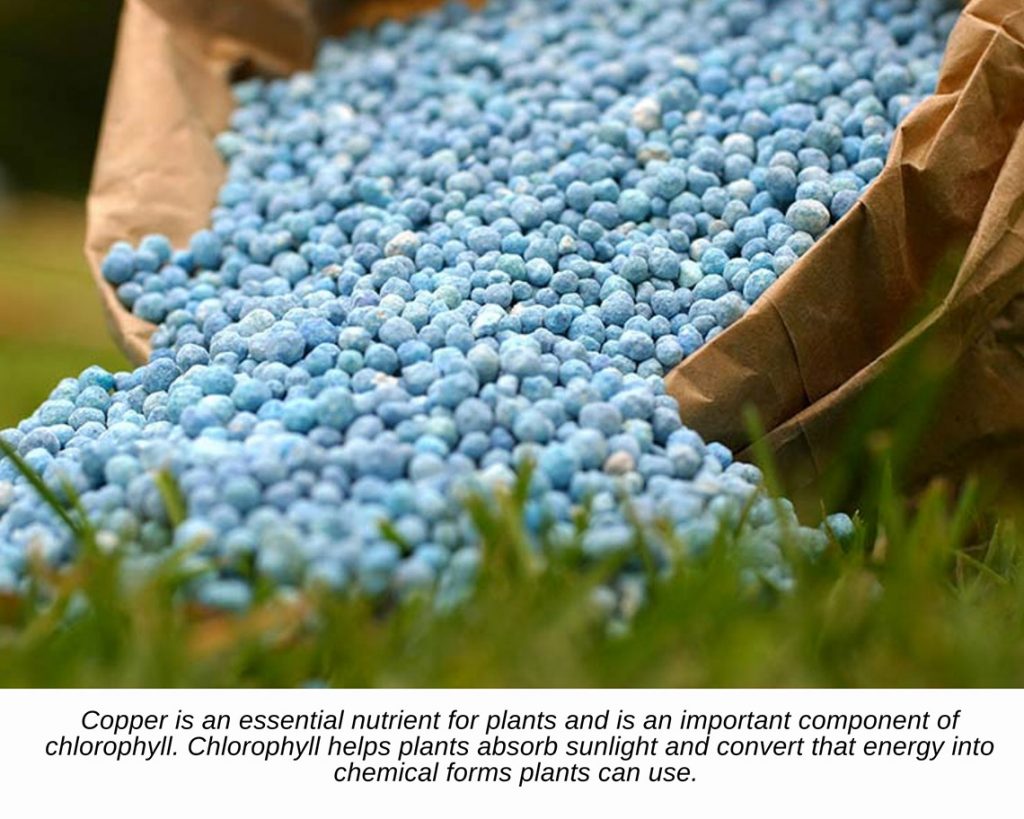Copper is a mineral used in all kinds of products and processes. There are many ways to use copper and many things that we use copper for, and we use copper for many different kinds of things. One of those things – being a copper fertilizer, is what we use for the growth of our plants.
Copper and its Significance in Nature
When you think of copper, the first thing that comes to mind is copper wiring. It’s not the most exciting metal to use, but it is one of the essential metals for modern society. It is used in the electrical grid, water pipes, phones and phones, and many other items. Copper is also an essential mineral for plants and is one of the most common elements found in the human body.
How much copper content is there in different soil types?
Copper is a good fertilizer for many reasons, but one of the main reasons is that copper is a great fertilizer for the soil, and all soils have different copper content. It is a common misconception that all soils contain more copper than other soil types. While some soils may contain significantly more copper, some soils contain less.

Copper, a trace mineral, is naturally found in soil, but some soils contain more copper than others. For example, some soils can contain as much as 120 mg/kg of copper, while others have as little as 10 mg/kg. This variation in copper content is a major factor in determining the best fertilizer to use on a farm. In general, soils with a low organic matter content have low levels of copper, a high organic matter content has a higher level of copper, and sandy soil will have a higher content of copper than clay soil.
What is the Role of Copper Fertilizer in Plants?
Copper has been used as a fertilizer for thousands of years. Still, the fact that the element’s chemical properties have been well known for so long is a clear indication that humans have been trying to use it as a fertilizer for a very long time. It is a powerful fertilizer that can be applied to a wide range of crops, including grains, vegetables, fruit, and flowers. Its use in plants help in growth, changes in color, nutrition, growth, and rejuvenation.
While this type of metal is poisonous in large quantities, it is essential for living things. The amount that plants and crops can accumulate copper is determined by the size of the organism and the levels of water and nutrients it receives. When there is a problem with either the soil, the plants, or the plant nutrients, copper fertilizer is used to add copper back to the soil or the plants.
However, this element does have a few drawbacks that make it a poor choice as a fertilizer for most crops. Its availability is often an issue for both commercial and home gardeners. However, as copper is a highly productive plant nutrient, it is normally low in phytotoxins consistent with the use of high-quality copper sulphate or copper sulphate fertilizers that are highly soluble and available to plants from low concentrations of the element. If copper is not properly managed, it can destroy a plant’s health and, eventually its life.
Copper and Farming
Copper can be used in farming in two very different ways. There is the more common use in the form of copper sulfate, which is used in agriculture fertilizers. This can be used in the form of soluble copper sulfate, soluble copper-fertilizer, or copper-nitrate. These are used to control the amount of plant nutrients in the soil. With the changes in soil structure, copper sulfate can create the right structure conditions in the soil for the crops to be provided with the right amount of nutrients.
What is Copper Deficiency in Plants?
Copper deficiency is a serious problem for many farmers, particularly those in colder climates. However, if you have a garden, you probably are not concerned about your crop being copper deficient. Farmer or a simple gardener, this deficiency is indeed a big problem for our plants.
Copper is a vital nutrient that plants can’t do without. Copper deficiency results in a poor crop yield, which is why it’s important to add copper when you’re growing plants from seed. This can be done by spreading a copper application in your soil when you’re planting the seeds or later in the season when you’re planting the plants. Some gardeners also take a supplemental copper supplement when they’re growing plants from seed.
How do copper fertilizers affect the soil’s structure?
Copper is an essential nutrient for plants and is an important component of chlorophyll. Chlorophyll helps plants absorb sunlight and convert that energy into chemical forms plants can use. This helps plants grow and stay healthy and helps plants to prevent them from rotting. Copper is also necessary for plants to produce chlorophyll, which is why it is so important to the health of plants.

Copper does more than just control plant growth, as its physical and physiological effects on the soil and surrounding ecosystem are as important as plant growth. Copper is a highly active element that affects the structure, water, oxygen, pH, organic matter, temperature, and temperature regime of the soil, affecting the quality of the soil for years to come.
Frequently Asked Questions
Is copper essential to plants?
In a plant’s life, copper is an essential element. Why? It enables plants to utilize sunlight for photosynthesis. Copper is involved in the synthesis of chlorophyll, a green pigment that absorbs light to provide food for plant life. Chlorophyll is a green pigment that absorbs light to provide food for plant life.
Is copper fertilizer safe for my plants?
Copper sulfate is an inexpensive, environmentally friendly, and effective way to fertilize plants. It comes as a powder so as not to contaminate your garden or crops as you sprinkle it on. It is also safe to use on food crops, as it does not pose any threat to your health or plant life.
How can I increase the copper levels on my soil?
There are multiple ways to increase the levels of copper in the soil. Some of these are far more invasive than others. For example, one of the most common methods is to use copper sulfate. As the name implies, this method actually involves applying copper sulfate directly to the soil, which is often done with a copper sulfate solution on the end of a hose, or on an easily transportable tank. A less invasive method of increasing copper levels is to use copper hydroxide, which is the copper salt form of hydroxide. This method can be done simply by adding copper hydroxide to the soil.


